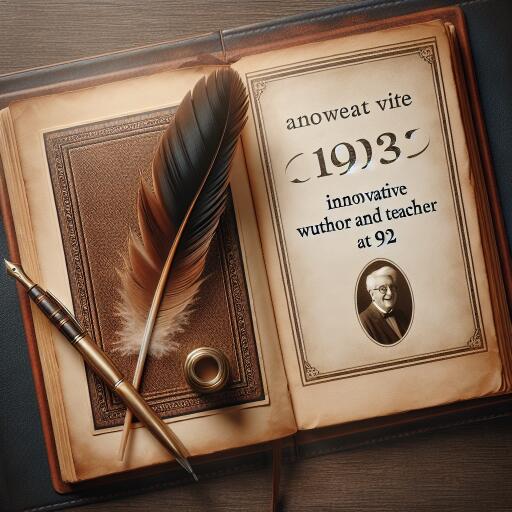Robert Coover, innovative author and teacher, dies at 92
Robert Coover, a dynamic and inventive writer who transformed the landscape of literature with his groundbreaking narratives such as “The Babysitter” and “The Public Burning,” has passed away at the age of 92. His passing occurred on Saturday at a care facility in Warwick, England, with his family by his side.
Coover’s contribution to literature was monumental, as he was among a cohort of writers in the 1960s and 1970s who pushed the boundaries of storytelling, embracing forms of post-modern, or “meta-fiction.” His contemporaries included William Gass and John Barth, who deconstructed traditional narratives and inflected their works with linguistic experimentation and genre parodies. Coover’s distinctive style was infused with dark humor, candid sexual content, and a wide array of cultural allusions that spanned from baseball to the intricate life in small towns.
Once remarked by author Ben Marcus, Coover’s writing drew heavily from his rich landscape as a reader. Rather than charting his own worldly experiences, Coover enveloped himself in texts, influenced profoundly by ancient myths and classical literature. His work brought these tales into the framework of modern American stories, crafting narratives that lived both in the present and the mythic past.
Among his vast body of work, “The Babysitter” stood out with its complex layers of reality, taking a simple evening of babysitting and transforming it into a labyrinth of possibilities. Other intriguing pieces include “You Must Remember This,” a risqué reimagining of “Casablanca,” and “Huck Out West,” which continued the iconic tale of Huckleberry Finn.
Coover’s work was underscored by an intentional comic undercurrent, as he once expressed his lifelong belief in the comedic nature of his art despite its often intricate and multi-faceted narratives.
Perhaps his most contentious yet celebrated work was “The Public Burning,” published in 1977. This rapid-fire satirical novel tackled the somber subject of the 1953 executions of accused communist spies Julius and Ethel Rosenberg. Here, Coover interwove historical drama with imagined introspections of Richard Nixon, bringing to the forefront a bold blend of fact and fiction that challenged narrative convention.
Coover’s legacy extended beyond his writings into his teachings. During his long tenure at Brown University from 1981 to 2012, he advocated for storytelling that strayed from traditional narrative forms dominated by realism. He influenced numerous budding writers, including the likes of Rick Moody and Sam Lipsyte, urging them towards daring literary innovation.
Not only a pioneer on paper, Coover was at the forefront of integrating storytelling with digital technology. He was an early advocate for combining literature with digital media through initiatives such as “Cave Writing,” which allowed students to immerse themselves in virtual reality narratives. This visionary approach predated the common use of e-books, marking him as a forerunner in electronic literature.
Throughout his illustrious career, Coover received numerous accolades, including the William Faulkner Award for his debut fiction, “The Origin of the Brunists.” He also earned the Rea Award for excellence in short story writing and was recognized by the American Academy of Arts and Letters, which honored him with a named award for his innovative contributions to digital narrative.
Coover’s personal life was as rich as his fictional worlds. He married Pilar Sans Coover, an accomplished tapestry artist, in 1959, and they shared three children. His family, including several grandchildren and great-grandchildren, remained close to him in his final days.
Born and raised in Charles City, Iowa, Coover’s early life fed into his evocative storytelling. After serving in the Navy and honing his writing skills at the Evergreen Review and other publications, he crafted novels that transformed the fabric of American fiction. An incident in 1960, which he described as transformative, led him to discard conventional narrative styles, a decision that brought innovation and a fresh perspective into his work.
Coover’s novels remain vibrant testaments to his belief that storytelling could transcend traditional boundaries. He drew inspiration from complex figures like Kafka, rejecting staid realism in favor of narratives that explored deeper mythic and personal truths.
Robert Coover’s impact on literature, both through his written works and through his influence on digital narrative, will resonate for years to come. His willingness to push boundaries and explore uncharted territories in storytelling and education set a new standard for how narratives could be shaped and experienced in a modern world.









